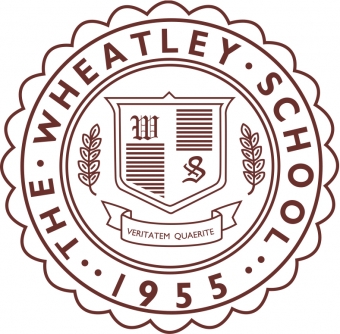- Education Topics
- Achievement Gap
- Alternative Education
- American Education Awards
- Assessment & Evaluation
- Education during COVID-19
- Education Economics
- Education Environment
- Education in the United States during COVID-19
- Education Issues
- Education Policy
- Education Psychology
- Education Scandals and Controversies
- Education Reform
- Education Theory
- Education Worldwide
- Educational Leadership
- Educational Philosophy
- Educational Research
- Educational Technology
- Federal Education Legislation
- Higher Education Worldwide
- Homeless Education
- Homeschooling in the United States
- Migrant Education
- Neglected/Deliquent Students
- Pedagogy
- Sociology of Education
- Special Needs
- National Directories
- After School Programs
- Alternative Schools
- The Arts
- At-Risk Students
- Camps
- Camp Services
- Colleges & Universities
- Counties
- Driving Schools
- Educational Businesses
- Financial Aid
- Higher Education
- International Programs
- Jewish Community Centers
- K-12 Schools
- Language Studies
- Libraries
- Organizations
- Preschools
- Professional Development
- Prom Services
- School Assemblies
- School Districts
- School Field Trips
- School Health
- School Supplies
- School Travel
- School Vendors
- Schools Worldwide
- Special Education
- Special Needs
- Study Abroad
- Teaching Abroad
- Volunteer Programs
- Youth Sports
- For Schools
- Academic Standards
- Assembly Programs
- Blue Ribbon Schools Program
- Educational Accreditation
- Educational Television Channels
- Education in the United States
- History of Education in the United States
- Reading Education in the U.S.
- School Grades
- School Meal Programs
- School Types
- School Uniforms
- Special Education in the United States
- Systems of Formal Education
- U.S. Education Legislation
- For Teachers
- Academic Dishonesty
- Childcare State Licensing Requirements
- Classroom Management
- Education Subjects
- Educational Practices
- Interdisciplinary Teaching
- Job and Interview Tips
- Lesson Plans | Grades
- Professional Development
- State Curriculum Standards
- Substitute Teaching
- Teacher Salary
- Teacher Training Programs
- Teaching Methods
- Training and Certification
- For Students
- Academic Competitions
- Admissions Testing
- At-Risk Students
- Career Planning
- College Admissions
- Drivers License
- Educational Programs
- Educational Television
- High School Dropouts
- Higher Education
- School Health
- Senior Proms
- Sex Education
- Standardized Testing
- Student Financial Aid
- Student Television Stations
- Summer Learning Loss
The Wheatley School

Basic Information
Address: 11 Bacon Road
Old Westbury, NY 11568
County: Nassau
District: East Williston School District
Phone Number: 516 333-7809
Principal: Sean C. Feeney, Ph.D.
Action Shots
* There are currently no photos associated with this listing.
Additional Information
School Type: Public
Accreditation: NYS Board of Regents
Grade Level:
9-12
Founded: 1955
School Setting:
Suburban school district approximately 25 minutes from Manhattan
PTA Organization: Yes
Mission Statement:
The mission of The Wheatley School is to inspire students to use knowledge and critical thinking skills in pursuing a life of intellectual inquiry and personal growth, thus preparing them to embrace the responsibilities of active citizenship and become life-long learners. Education is academic, and also includes values, interpersonal relations, and connections to the world. We value the capacity to recognize change in both the world and ourselves and to adapt to those changes. We want ourselves and our students to be caring, accepting of others and aware of how our actions affect others, both within our school community and in our global responsibilities. We believe that for us and our students education is a journey that is never finished.
Philosophy/Belief Statement:
1. We value a curriculum that emphasizes the interdisciplinary nature of all education by making connections across disciplines and to the world outside the classroom. Effective teaching and authentic learning are measured by genuine problem-solving, critical thinking skills, engagement in learning, ability to collaborate, and individualized teaching and learning styles, not just by standardized tests.
2. We value a community in which every individual feels respected, safe, supported and free. When individuals, both teachers and students, feel safe and supported they feel free to take risks, pursue their interests, achieve their potential and respect diversity. Teachers should serve as role models for participation in a diverse world. Education accepts diversity without prejudice.
3. We value a supportive atmosphere that responds to every student's needs. We believe that when you treat others with respect they respond with respect. When you give others freedom they respond with responsibility. When you treat them with trust they respond honestly. We value honesty in all areas of endeavor, especially academics.
4. We value a school culture that encourages all its members to become active citizens of a global society. A good school fosters values which enable people to get along well and respect each individual's unique characteristics. These values are fostered for all members of the community through co-curricular as well as curricular activities.
Enrollment Characteristics: 790 students in grade 8-12

